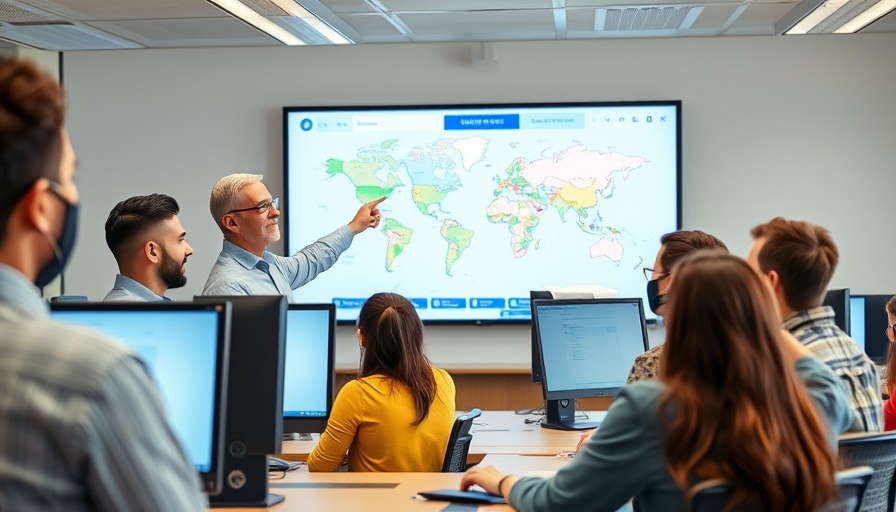
Transforming Adult Education in the AI Era
As we navigate through the fourth industrial revolution, a significant shift in adult education is underway, spurred by the rapid advancements in technology and the growing need for lifelong learning. This transformation is vividly illustrated in a recent seminar hosted by the World Health Organization (WHO), featuring insights from educational leaders like Daniel Baril, Chair of the UNESCO Institute for Lifelong Learning. The seminar emphasized five innovative models that redefine the educational landscape, particularly in healthcare settings.
Why Lifelong Learning Matters Today
Lifelong learning is no longer just a concept; it has become a necessity. In times of changing job markets and new health challenges—exemplified by the recent global pandemic—the ability to adapt and learn continuously is crucial. This need aligns perfectly with the capabilities of artificial intelligence (AI), which has the potential to personalize learning experiences based on individual needs. The WHO seminar pointed out that adaptive systems can help create customized educational paths that tackle specific knowledge gaps and professional goals.
AI: The Game Changer for Learning Pathways
Leveraging AI in education offers a myriad of possibilities. According to the WHO's insights, AI can assist in developing interactive tools that empower learners, making them active participants in their educational journeys. These tools help shape learning pathways that cater to the ambitions and requirements of each individual, promoting engagement and motivation. Imagine a world where your learning adjusts in real-time, responding to your progress and preferences!
Advanced Learning Platforms: Evolving Ecosystems
The WHO seminar highlighted how advanced learning platforms are no longer static resources but dynamic ecosystems that adapt to lifelong learners. These platforms continuously evolve, providing learners with updated materials and resources that resonate with their personal growth and learning objectives. The idea is to create a seamless integration of learning into daily work routines, enhancing both performance and professional development.
The Role of Feedback and Assessment
Instant feedback and adaptive assessments are other pillars of modern educational approaches. The new tools discussed at the WHO seminar allow learners to receive immediate insights into their progress, enabling them to make informed decisions about their next steps. Instead of waiting for periodic evaluations, adults can now engage in a continuous loop of learning, adjustment, and improvement, easing the stress typically associated with standardized testing.
Learning in the Context of Health and Well-being
As we embrace these new learning methodologies, it becomes essential to frame them within the context of health and well-being. With the rise of global health crises, including the recent pandemic, the education of healthcare professionals is more critical than ever. By integrating modern education practices, we can ensure that healthcare providers are well-equipped to tackle emerging health challenges and contribute to public well-being.
Your Role in This Learning Revolution
The understanding of lifelong learning has evolved, and so should our approach. Engaging in continuing education helps individuals not only keep up with industry standards but also fosters an environment of growth and curiosity. For anyone interested in enhancing their professional skills or seeking alternative health options, participating in seminars like those organized by the WHO can provide vital insights and tools. Whether you are a healthcare professional seeking to improve patient outcomes or someone looking to stay updated on global health developments, embracing lifelong learning is an empowering step forward.
Join the Conversation
In conclusion, the integration of AI in lifelong learning opens up new avenues for growth and development not just in healthcare, but across various professions. As individuals committed to personal and professional growth, we can take inspiration from these advancements to shape our educational paths. Interested in joining the conversation? Consider attending future WHO seminars or exploring learning resources that can help you stay at the forefront of continuous learning.
Let's embark on this learning journey together!
 Add Row
Add Row  Add
Add 




Write A Comment